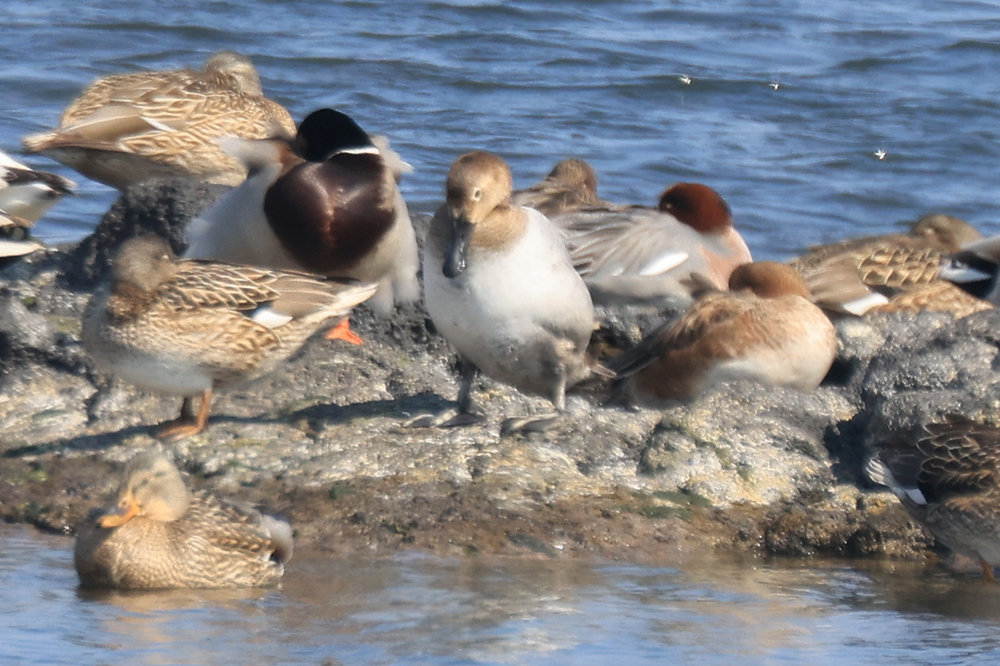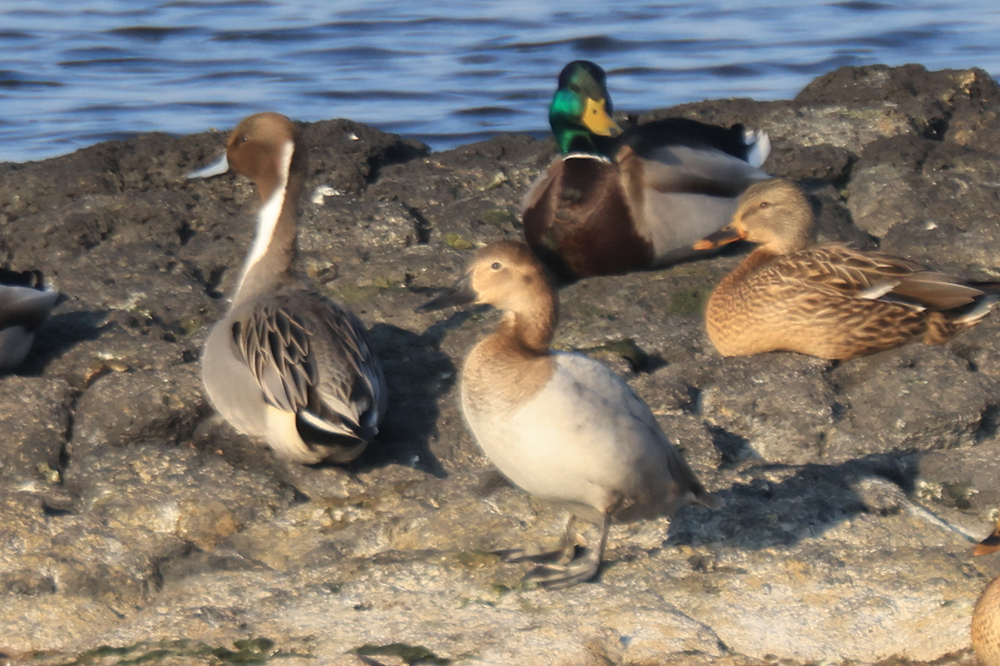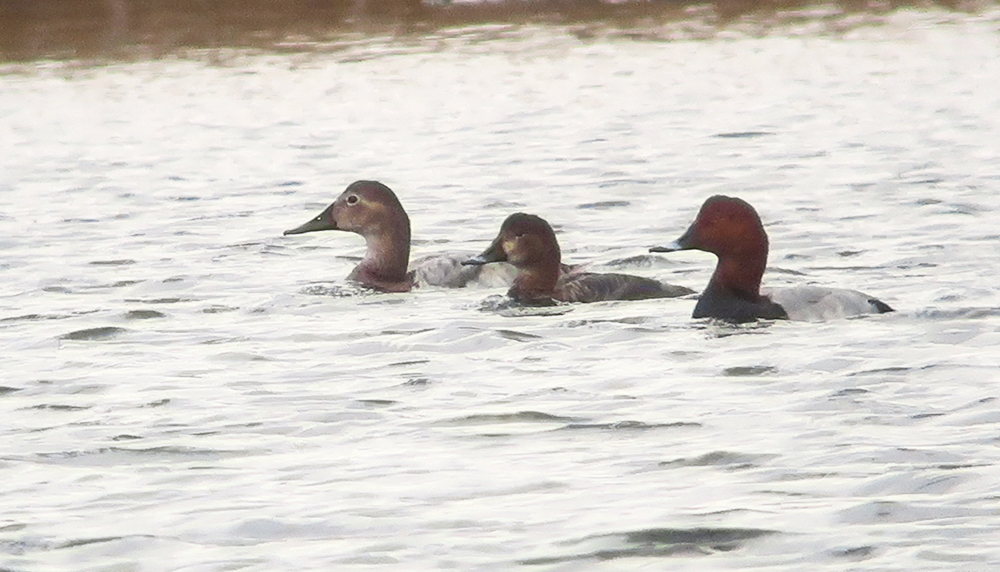Earlier this winter, an interesting discovery was made on the east coast of Jeju Island. A female Canvasback (Aythya valisineria, 큰흰죽지) was found by Kim Yewon (김에원) at Seongsan Wetlands, first seen in winter of 2020, and then seen again in December 2021. This is the first adequately documented record of a Canvasback in the Republic of Korea. There have been several Canvasback sightings reported in the ROK without supporting photographs. In addition, there have been hybrids spotted, such as one individual seen in Gangneung in winter 2012, link here http://www.birdskorea.org/Birds/Birdnews/BK-BN-birdnews-2012-02.shtml.
Over the winter I made a few efforts to search for the Canvasback. After a couple tries, I finally located it on January 21st with a group of Common Pochards in a small pond within the Seongsan wetland. Most of the time it was resting with its head tucked away, but a few moments where it lifted its head up provided nice views of the different bill and headshape, with opportunities to take record photos. Compared to the surrounding Common Pochards, the bird was larger with paler colouration. The head was strikingly distinct with a steep black bill and the highest point of the head slightly behind the eyes, giving it a triangular appearance. Below are some photos taken over a three month period.






As a Canvasback is considered very rare for Korea, word got out eventually and photos and reports were posted on social media and eBird. On a return trip to the site on March 19th, I refound the Canvasback still residing in the same pond area with the group of Common Pochards. On a return visit in mid-April, I did not find any Pochards nor the Canvasback associating with them, so they have moved north for the season.
There was substantial speculation about whether the Canvasback is a hybrid or not. It’s been pointed out that high resolution photographs taken by others show some slight tonal differences on the bill, pointing to a possible hybrid or mixed background. It’s likely that these tonal differences are due to different amounts of moisture on the bill reflecting light, as well as natural tonal shifts on wintering individuals. Having seen the duck twice (January and March), I can say with certainty that this individual was distinct from the surrounding Common Pochards. The bill appeared solid black on both of the days I viewed it through my scope, and when examining the digiscoped photos I had taken.
In order to help build confidence in the ID, images were posted on social media, and experts were contacted for their opinions. Support for the identification as a “pure” Canvasback was strong.
The Canvasback is not the only special duck found on Jeju Island the past winter. In addition, an American Wigeon was spotted nearby, a North American duck species that is regularly reported in low numbers annually in the ROK. Even more interesting was another North American species, the first Surf Scoter (!!) reported in the ROK, originally spotted by Ko SeungHee (고승희) on February 9th, and was seen in Sinyang Port on the southeast of Jeju for two days before moving on and not being seen again. A news article on the Surf Scoter can be seen here https://news.v.daum.net/v/20220209175842449.
Any comments, suggestions, or additional photos on the Canvasback are welcome.
Acknowledgements
Many thanks to Dr. Nial Moores and Kang Heeman (강희만) for the initial notice about the Canvasback (NM, KHM), and information on the original observer (KHM); also thanks to Dr. Soyoung Sung for kindly providing additional photographs; and thanks to all those who provided expert comments on Facebook, including especially Pete Morris, Sunny Zhang, Frank Lin, Sebestien Reeber and Richard Crossley.

